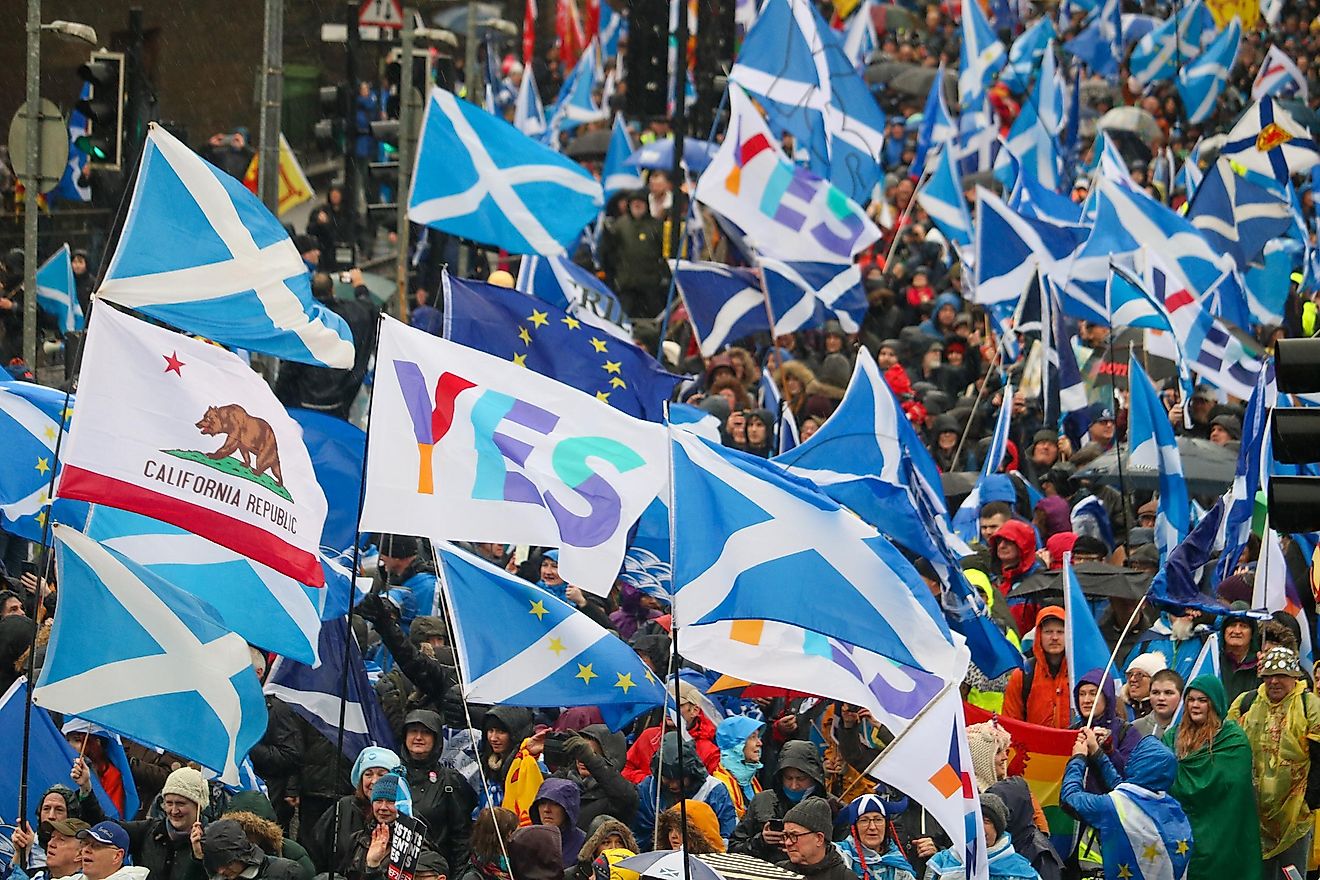Is Scotland a Country?

The question of whether Scotland is a country or not may raise some level of confusion because it can fall on either side of the argument. There are eight accepted criteria that form the basis of whether a region is an independent nation or not. A country needs to fulfill all of the criteria to be recognized as an independent State. Scotland meets some but not all of the criteria and therefore not an independent nation.
The Territory Must Have Boundaries Recognized Internationally
Scotland's territorial extent is based on the Treaty of York of 1237 agreed between the Kingdom of England and Scotland and the subsequent Treaty of Perth of 1266 between Scotland and Norway. However, over time portions of Scotland's territory were lost including Berwick-upon-Tweed and the Isle of Man acquired by the UK, and Shetland and Orkney lost to Norway. Scotland's area is 30,414 square miles. Scotland has a land border with England which extends for 60 miles from River Tweed’s basin to the Solway Firth.
Population
A Census carried out in 2011 reported a population of 5,295,400, a rise from the 5,062,011 in 2001. A bout 62% of the residents identified as being "Scottish only" while 18% said they were Scottish and British. 8% of the population identified as "British only" while 4% identified as being of another identity only. Glasgow, with more than 584,000 inhabitants, ranks as Scotland's largest city. About 1.2 million residents live in the Greater Glasgow conurbation which is almost a quarter of the population of Scotland.
An Organized Economy and Economic Activity
A country regulates both domestic and foreign trade and disburses money. In 2015, Scotland's economy registered approximately 145 billion British Pounds in GDP. The per capita GDP of Scotland was among the highest in the EU in 2014. Scotland has an open mixed economy similar to that used in western countries including the UK. Heavy industry is among Scotland's main economic sectors as well as petroleum associated industries linked to the extraction of North Sea Oil. Scotland, however, does not regulate its domestic or foreign trade as the Scottish Parliament is not empowered to do so. Although the Bank of Scotland has the mandate to print money, it only prints the British Pound and does so on behalf of the Central Government.
The Power of Social Engineering
The Scottish Parliament retains the power to control education as well as social work and training. However, this power does not extend to social security. Scotland's education system thus differs from that implemented in the rest of the UK.
Transportation System
Although Scotland possesses a transportation system, it is partially controlled by the UK. While Scotland manages rail strategy and funding, the UK, under the Network Rail Infrastructure Limited, operates Scotland’s rail network. Scotland manages ports and harbors and the road network while the UK oversees transport regulation and safety.
A Government That Offers Public Services in Addition to Police Power
The UK Parliament retains the mandate to oversee national security and defense in all parts of the UK. Scotland, through its parliament, has the mandate to control home affairs and law including the courts and the prosecution system.
Sovereignty
Scotland lacks sovereignty as it is not an independent nation. According to the criteria of sovereignty, no other country should have authority over the particular nation’s territory. The United Kingdom maintains authority over the territory of Scotland
International Recognition
This criterion requires that other countries should recognize the sovereignty of the country in question. Scotland does not operate embassies in other nations, and it lacks external recognition.











